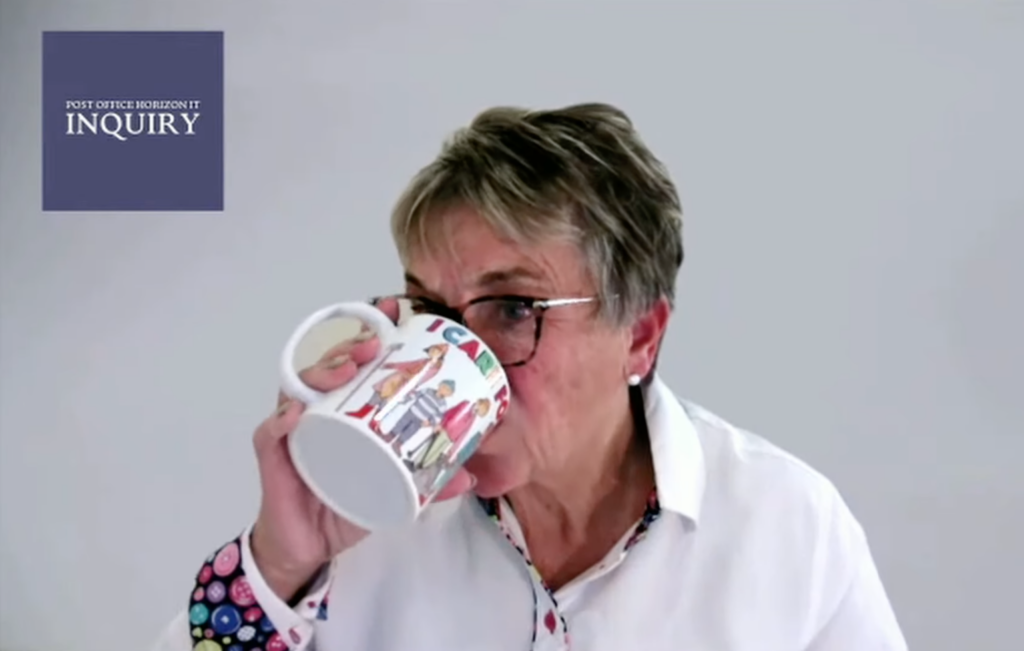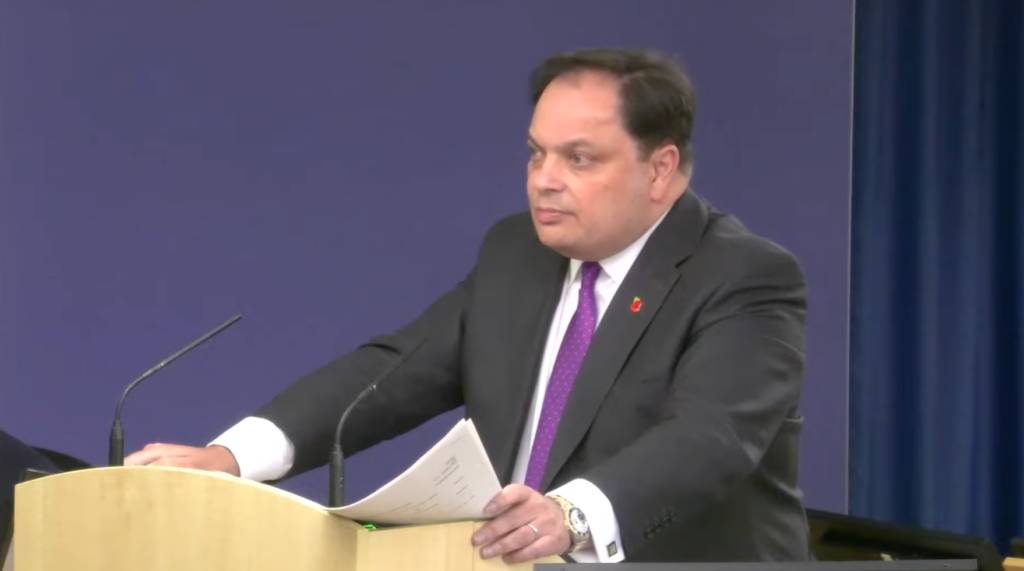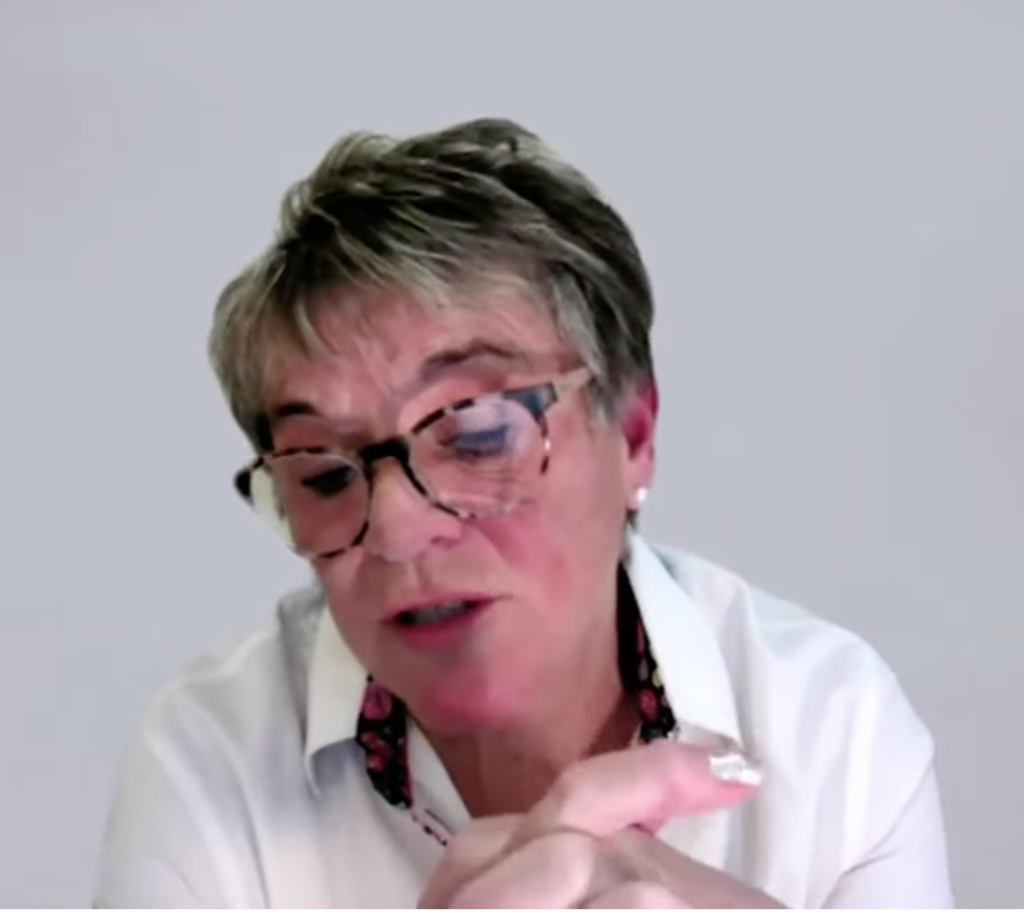
It’s hard to know where to start with yesterday’s Inquiry hearing. Karl Flinders from Computer Weekly decided to cover yet another Post Office disclosure disaster. I am going to attempt to analyse the evidence which came courtesy of Elaine Cottam.
Ms Cottam was a former Post Office Retail Line Manager. She was called to give evidence to the Post Office Horizon IT Inquiry to help try to work out what had happened in the Cleveleys case. Cleveleys Post Office was run in 2000 by a woman called Julie Wolstenholme who suffered problems with the Post Office Horizon system from the moment it was installed.
Instead of receiving help, she was sacked. By Elaine Cottam. Mrs Wolstenholme fought back. She kept possession of her Horizon terminal and suggested a proper examination of the hardware might reveal the source(s) of her problems. The Post Office had no interest in all that – but they did want their kit back, so in 2003 they took Mrs Wolstenholme to Blackpool County Court.
The case was resolved when a court-appointed technical expert – Jason Coyne – took a look at the available evidence and decided there were red flags all over the Horizon system. Desperate to keep this information out of the public domain, the Post Office settled the case with Mrs Wolstenholme. The Inquiry spent some time looking into the Cleveleys case earlier this year. For more detail, you can read and watch the evidence from Jason Coyne, Fujitsu and a Post Office lawyer on the Inquiry website by looking for the transcripts on 26 – 28 July 2023. But let’s, for now, focus on…
Elaine Cottam
In 2000, as a Post Office Retail Line Manager, Elaine Cottam had a role of some significance. The power to suspend someone – ie remove their livelihood – without warning, or having to give a reason, carries responsibility. It’s the sort of power which should only be exercised with a great degree of caution, by someone who has been properly trained with the capacity to understand the repercussions of their decisions.
Before a witness gives evidence to a public inquiry they are usually sent a bundle of relevant documents and asked a series of questions. The written answers to those questions form the basis of their witness statement, submitted to the inquiry before any oral evidence hearing.
It is a reasonable expectation that anyone asked to give a witness statement to a public inquiry would take it seriously. If called to give oral evidence, they might ask questions of the secretariat about what to expect, perhaps do some research and turn up as prepared as possible. After all, giving evidence under oath is not something to be taken lightly. Given there were three days of hearings directly related to the case Ms Cottam was involved in, natural curiosity might have at least suggested she watch or read some of it.
Elaine’s Evidence

On Tuesday, after being sworn in, Elaine Cottam was asked questions by Jason Beer KC. Beer first of all wanted to know why, in response to the large number of documents and questions sent to her on 12 July this year, she had submitted a witness statement “two and a half pages long, which contains next to no information.”
“I don’t know what sort of information you wanted me to put in it”, replied Cottam.
Beer took her to the question which asked her to set out her professional background. In response to this, Cottam had written: “I was employed as a Retail Line Manager by Post Office Counters Limited – I do not remember the exact date I took up this post or the date that I left this post.”
Beer pointed out this contained no information about Cottam’s professional background. Cottam replied that this was a “misunderstanding”. Beer asked “between whom?”
Cottam replied: “Between myself and what I was asked for.”
In answer to another question, Cottam had put in her witness statement to the Inquiry that when a Retail Line Manager, she was responsible for 27 Post Office branches. Yet in a 2003 witness statement for the Post Office, she told a court she was responsible for 112 Post Offices. Cottam wasn’t sure when the number had changed and she couldn’t remember if she was responsible for 112 offices at the time of her 2003 witness statement. Beer wondered if the figure had been put into her witness statement in 2003, it was fair enough to assume it was true. Cottam said she couldn’t remember. Beer tried again:
“That’s not a question about memory; that’s asking if you made a sworn statement to the court, which said, “I am responsible for 112 post offices”, in 2003, that’s likely to be…”
“And what date was that? What date was that?” Cottam interrupted.
“16 October 2003, as I told you and as we looked”, replied Beer.
“I can’t remember”, replied Cottam again, apparently misunderstanding the question a second time.
Cottam did remember recruiting Julie Wolstenholme as Subpostmaster in 1999, when, due to ill-health, Julie’s father decided to retire. Cottam assessed Wolstenholme’s suitability, stating at the time: “I have no reason to doubt her honesty”.
Beer wanted to know how she went from this assessment to sacking her for dishonesty just over a year later. Cottam had an interesting take:
“I soon picked up on when I was going to the office – she worked very closely with her husband and he was heavily involved in the day-to-day running of the office. And that was not taken into consideration because I wasn’t aware that that was going to be the case when Julie was appointed.”
Beer was intrigued. “Why are you telling us this?”
“I think it’s relevant” replied Cottam.
“Are you hinting that you think he was the dishonest one, not her?” asked Beer.
“I’d rather not say”, said Cottam, suddenly all prim. She admitted to Beer she had “no proof at all” of any dishonesty or criminality on Julie’s husband’s part, either now or in 2000.
Can she be a witness?
Jason Beer started to explore more of Elaine Cottam’s 2003 witness statement. This became a difficult and protracted process as it transpired that Elaine Cottam not only had very little understanding of the information she had submitted in the witness statement she signed, but seemed to have absolutely no idea there had been a legal case against Julie Wolstenholme in the first place:
Cottam: “I didn’t know there was a civil court. The first I knew that there’d been a court case was when I got this bundle of documents.”
Beer: “You provided this witness statement to the civil court?”
Cottam: “I don’t remember doing that.”
Beer read out the following passage in Cottam’s 2003 witness statement:
“Mrs Wolstenholme persisted in telephoning the Horizon Helpdesk in relation to any problems which she had with the system and generally, these problems related to the use and general operation of the system and were not technical problems relating to the system. Copies of the call logs for the period 10 January 2000 to 30 November 2000 together with a brief analysis of the calls to the Horizon System Helpdesk which I prepared following Mrs Wolstenholme’s suspension are at pages [then you give some pages to an exhibit]. Whilst there were some problems at other branches, they were not insurmountable and were often due to the system crashing or were general teething problems.”
When asked about this sentence, Cottam said she didn’t remember asking for any call logs, didn’t remember receiving them and didn’t know why she needed them, because she wouldn’t understand them. She seemed utterly mystified at the idea she might be able to offer any analysis of them, and with the air of someone looking at hieroglyphics on a piece of wood, told the Inquiry:
“I don’t understand these. Don’t understand them. I don’t know what it’s saying, “Gateway is now stuck at 3%”. That means nothing to me.”
One thing she did spot was that Julie Wolstenholme’s husband had made some of the calls to the helpline, and on the call log had been classified as the Subpostmaster.
Cottam: “But he’s not the postmaster, is he?”
Beer: “What’s your point?”
Cottam: “Well, he doesn’t feature very heavily anywhere, does he? And yet his name’s on all these now.”
Beer: “What’s your point?
Cottam: “Well, it says, “Title: Postmaster”, and he wasn’t, was he?”
Beer: “What’s your point?”
[…]
Cottam (suddenly prim again): “Well… well, nothing. It doesn’t matter. “
Beer: “Is this the suspicion without proof issue raising its head again?”
Cottam: “I’m not going down that line at all.”
Beer: “I thought you just did.”
Beer managed to steer Cottam back to her “analysis” of the call logs and what they might mean. Cottam had been sent them in July this year but seemed to have no recollection of seeing them then, let alone 20 years ago. Then her brain seemed to melt down a little bit and she started crying.
Beer and the inquiry chair, Sir Wyn Williams, immediately stepped in and a fifteen minute break was agreed. Sir Wyn noted how “confused” Cottam appeared to be, and asked Beer where this was all going. It turned out Beer had evidence of Cottam calling the Horizon Helpline third line support to explain various software problems on behalf of Julie Wolstenholme from the Cleveleys branch, yet for some reason none of the calls that Cottam had made were included in her 2003 witness statement to the court. And her witness statement also stated the calls Julie Wolstenholme had made were “not technical problems relating to the system”.
After the break, Beer asked her about it:
Beer: “This is you calling in. Why would you be calling the Helpdesk?”
Cottam: “Because I would have been at the office trying to help them sort out whatever it was.”
Beer: “Why wouldn’t the subpostmaster call in?”
Cottam: “Well, she probably did.”
Beer: “No, she didn’t. You did.”
Cottam (unable to help herself): “Or he did. We were looking for some advice from somebody.”
Beer: “Sorry, did you say “or he did”?”
Cottam: “I don’t know, I can’t remember.”
Beer: “Was that slipping into the suspicion without proof thing again.”
Cottam: “Well, I wouldn’t like to say.”
Beer: “Well, but you just did.”
Despite her clear insinuation, which she admitted was based on no evidence whatsoever, that Julie Wolstenholme’s husband might have been responsible for dishonest behaviour in 2000, Cottam insisted her memory was a blank when it came to the very existence of her 2003 witness statement.

“Can you help us as to how it came about that there’s a witness statement to the Blackpool County Court in your name and signed by you as true, which says, “I prepared this analysis”?” asked Beer, after about five minutes of Cottam’s protestations.
“I don’t ever remember seeing it”, she replied. “I mean, it was a long time ago. I may well have done it but I really don’t, I just wouldn’t understand it.”
Beer tried to get Cottam to accept that her call to the Horizon Helpline’s third line support about a mysterious £100 adding itself to the Cleveleys branch balance when the weekly accounts were calculated was evidence of a software problem. Cottam wasn’t having it. Beer kept trying.
“That’s not Mrs Wolstenholme or Mr Harrison [Julie’s husband] adding something to the stock unit, somebody adding something. You’re telling the Helpdesk here that there’s a problem with the system, aren’t you? A stock unit has had something added to it.”
“Well, yeah”, replied a defensive Cottam. “How it was added to it is another matter.”
Beer gave up. But he had another point to make.
Enter Fujitsu
Following the trail of information about Cottam’s call all the way up the support line to Fujitsu, it transpired the problem Cottam was reporting was a known bug in the system. This was evidenced with some notes in the error log between Fujitsu engineers. Because it was a known bug, Fujitsu took the decision to close the call, without telling the Subpostmaster. Or apparently, Cottam:
Beer: “So you didn’t know about the known error log?”
Cottam: “No. Never heard of it.”
Beer: “There’s no record on here or indeed elsewhere of you or the Subpostmaster being told that a known error in the system occurred, which was affecting the balancing process? Do you see, there’s no record on this PinICL? [technical term for an error note]”
Cottam: “No, no, no, I didn’t know about it.”
Cottam accepted this would have been useful information. Beer went back to her 2003 witness statement. He wanted to know why this specific incident and the known error it revealed had not been included with the other call logs attached to the witness statement. There followed some of the most surreal gibberish I’ve ever heard from someone under oath. Here is an excerpt:
Cottam: “I will help you as much as I can but, really, I don’t understand where all this is coming from. Am I supposed to have written all this? I might well have signed it but I don’t remember all this.”
Beer: “Generally, when you write something to a court and say, “I believe the contents of this statement are true” and sign it with a pen underneath it, that indicates that you’ve written it. No?”
Cottam: “Well, when am I supposed to have signed this?”
Beer (wearily): “16 October 2003.”
Cottam: “I don’t remember it. I don’t remember it and the very first time I knew there’d been a court case about this was when this has just been raised again, when they sent me this bundle of papers. I didn’t even know there’d been a court case before that.”
Beer: “So you can’t help us why the call log recording you on two occasions assisting Mrs Wolstenholme, complaining about the service offered by the Horizon Helpdesk, about a balancing issue and the system adding sums on rollover was not included in the documents exhibited to your witness statement? You can’t help us there?”
Cottam: “No, no, I can’t see it.”
Beer: “Three weeks before she was suspended?”
Cottam: “Am I supposed to be looking at this now? Is this on here? I simply don’t understand what you’re asking now.”
Beer: “Well, I don’t understand what you’re asking me.”
Matters reached a head when Beer asked: “Do you think somebody has fabricated your signature on this witness statement?”
“Well”, said Cottam, “I don’t know if that’s the case or not but I didn’t know anything about the court case and I wasn’t called to the court case.”
Beer responded patiently: “As I said, it didn’t reach court because the Post Office settled.”
“Oh” replied Cottam. “But I didn’t know anything about it. You would have thought that they would have at least
approached me about it. They must have wanted some input from me at that stage.”
You would have thought, right? But maybe dealing with Elaine Cottam in 2003 was as difficult as it appears to be in 2023. So maybe they didn’t bother.
Beer tried one last time: “This is a 15-page witness statement signed by you.”
“No, this long… this statement of truth, yeah?” replied Cottam, as if she were seeing it for the first time.
“Yes.”
Cottam paused. “I just don’t really understand what it is I’m supposed to be doing here, really. What… I haven’t got copies of the call logs, so… other than in this bundle… I don’t understand.”
It appears that Elaine Cottam genuinely didn’t know what a witness statement was, nor had she worked out what its purpose might be, even by the end of her inquiry session.
Beer’s questioning concluded shortly thereafter. He had, without being derailed, successfully demonstrated that Fujitsu had kept a serious software problem from a Subpostmaster who then lost money and subsequently her livelihood as a result of the callous ineptitude of Elaine Cottam and her colleagues at the Post Office. Having achieved this, it seems someone at the Post Office went on to produce a misleading witness statement supposedly authored by someone without the capacity or capability of being responsible for it.
You can watch the full car crash here. I recommend it.
The world is full of thick-as-mince, malevolent incompetents like Elaine Cottam. The problems start when they are promoted into positions of power, as the Post Office appears to have done with multiple idiots on multiple occasions. I really hope the Met Police are taking note.
UPDATE: More than one person has suggested to me in good faith that Elaine Cottam, in giving evidence to the Inquiry, might be displaying possible symptoms of early onset dementia. I have no idea if Elaine Cottam has the condition or has been diagnosed with anything of this nature. I have approached in the Inquiry to pass on the concerns of the people who contacted me, in the hope that Ms Cottam might, if she wants to, consider seeking medical advice.
If you liked this post and would like to be added to my mailing list, please consider making a one-off donation to join my newsletter mailing list and keep the journalism on this website free.

Leave a Reply